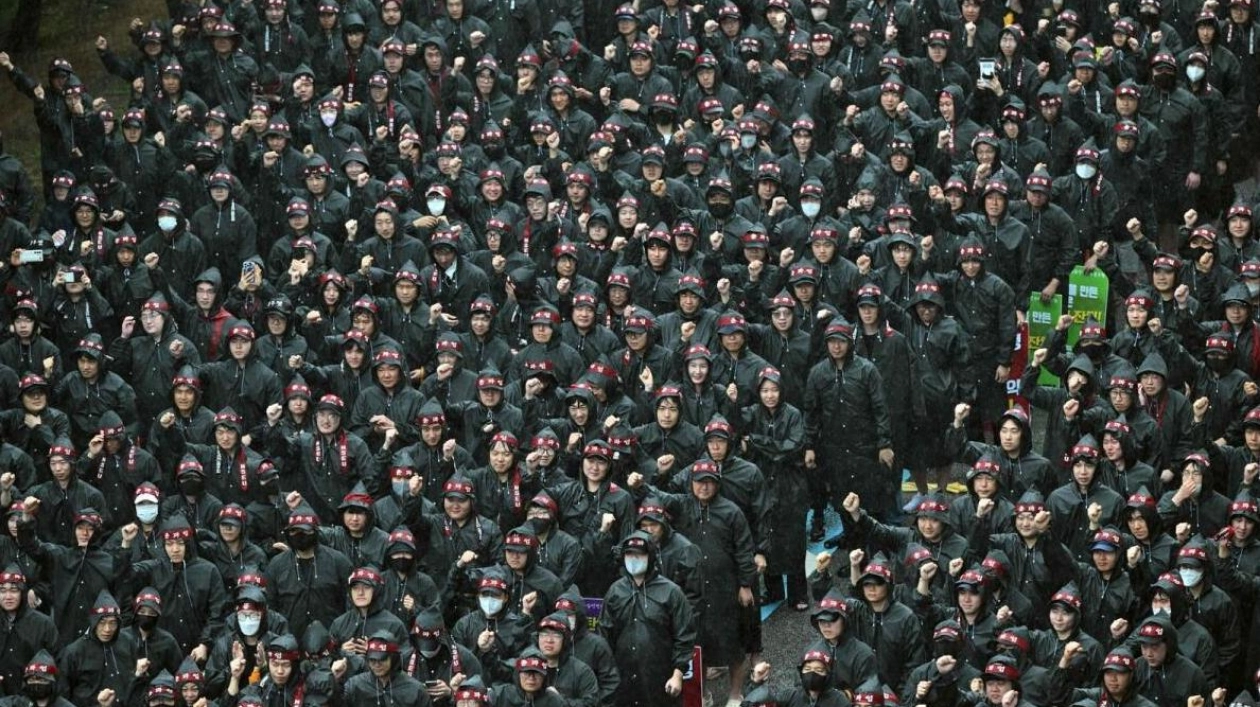On Monday, workers at Samsung, the South Korean tech giant, initiated a three-day general strike concerning pay and benefits, as informed by the head of a union representing tens of thousands of employees to AFP. The strike could potentially affect memory chip production, given that Samsung Electronics is the world's largest producer of these chips and a major contributor to the global output of high-end chips.
Thousands of workers, donning rain jackets and holding ribbons that read 'fight with solidarity', assembled outside Samsung's foundry and semiconductor factory in Hwaseong, Gyeonggi, located an hour south of Seoul. Negotiations between Samsung management and the union have been ongoing since January, but disagreements over benefits and a rejected 5.1 percent pay raise offer from the company have persisted.
Son Woo-mok, the head of the National Samsung Electronics Union, stated, 'The strike has started from today.' He further added, 'Today's general strike is just the beginning.' He urged the workers, 'Recalling why we are here, please do not come to work until July 10 and do not receive any business calls.' Approximately 5,200 people from factory facility, manufacturing, and development joined the protest.
The union, which boasts over 30,000 members, representing more than a fifth of the company's total workforce, announced the three-day general strike last week, citing it as a last resort after negotiations failed. This follows a one-day walkout in June, marking the first collective action at the company after decades without unionization.
The union appealed to its members last week, stating, 'We are now at critical crossroads. This strike is the last card we can use,' emphasizing the need for workers to 'act as one.' One union member and protester expressed, 'I'm really excited. We're making history.'
Workers rejected a 5.1 percent pay hike offer in March, with the union previously demanding improvements to annual leave and transparent performance-based bonuses. Samsung declined to comment. Business professor Kim Dae-jong at Sejong University noted that the strike, although scheduled for only three days, includes members working in chip assembly lines, and could pose a significant risk to Samsung's management in the competitive chips market if additional strikes occur.
Samsung Electronics, which avoided unionization for almost 50 years, rose to become the world's largest smartphone and semiconductor manufacturer. The company's founder, Lee Byung-chul, who passed away in 1987, was vehemently opposed to unions. The first labor union at Samsung Electronics was formed in the late 2010s. The firm, a subsidiary of the South Korean Samsung Group, recently forecasted a 15-fold increase in its second-quarter operating profits due to growing demand for generative AI. Semiconductors, crucial to the global economy, are used in various products from kitchen appliances to weapons, with demand for advanced chips powering AI systems surging thanks to the success of ChatGPT and other generative AI products.






